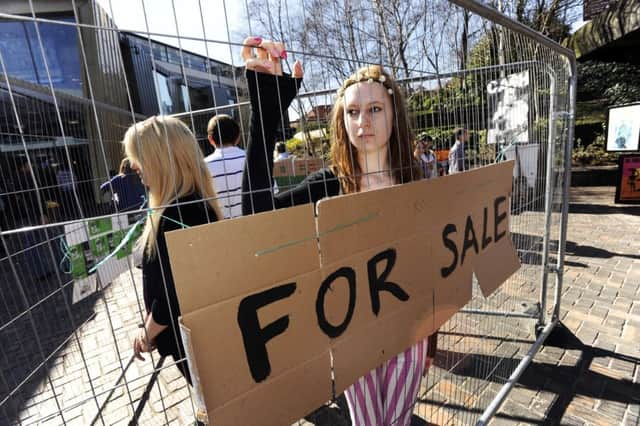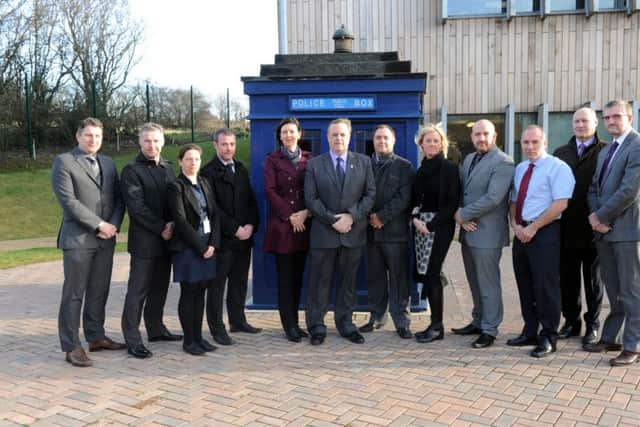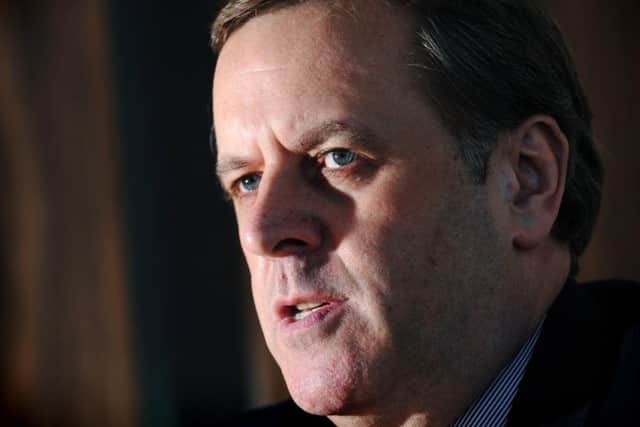Number of suspected human trafficking cases doubles in West Yorkshire


A big rise in intelligence reports by West Yorkshire Police was revealed today by the county’s crime commissioner as he unveiled plans for a nationwide network to better tackle the issue.
Mark Burns-Williamson said the National Anti-Trafficking and Modern Slavery Network will see police commissioners around the country agree to share information about criminal gangs and the best ways of identifying and catching offenders.
Advertisement
Hide AdAdvertisement
Hide AdWest Yorkshire Police is among the forces which refers the most suspected trafficking cases to the Home Office or National Crime Agency. Between April and June last year, the most recent period covered by statistics, it provided 17 of the 126 referrals from across the police service.


And between October 2014 and October 2015, Mr Burns-Williamson said the number of intelligence reports about suspected trafficking or modern slavery created by the force had risen by 158 per cent to a total of more than 600 over 12 months.
He said: “It is widely accepted that human trafficking and modern day slavery still remains a hidden crime with many victims transported through different force areas, making it extremely difficult to investigate and measure.
“Given the ease and frequency of transportation that victims go through I identified the need to create more national joined up working to raise awareness and share good practice throughout the UK.”
Advertisement
Hide AdAdvertisement
Hide AdNationally in 2014, 2,340 potential trafficking victims were referred into the National Referral Mechanism, the process run by the Salvation Army to support victims of trafficking and modern slavery, a 34 per cent increase on 2013.


Mr Burns-Williams said a large proportion of victims of human trafficking are Eastern European and that the recent migrant crisis in Europe was being exploited by criminal gangs to increase their people smuggling activities.
The launch of the network in London today will be attended by the Minister for Preventing Abuse and Exploitation Karen Bradley, Anti-Slavery Commissioner Kevin Hyland and PCCs from across England and Wales.
Mr Hyland said: “The establishment of the modern slavery network for Police and Crime Commissioners is undoubtedly a very important step forward in creating a more co-ordinated response to modern slavery across the UK.
Advertisement
Hide AdAdvertisement
Hide Ad“The improved communication streams and strategic direction that this network will help facilitate will enhance the UK’s efforts to combat modern slavery enormously.”


In 2014, The Yorkshire Post revealed fears that hundreds of victims of human trafficking and forced labour are going undetected across Yorkshire as members of the public and local authorities fail to recognise the problem going on in front of them.
Official statistics about the numbers of people forced into miserable working conditions or trafficked into the country to be exploited in the region “hugely understate the scale of the problem”.
Professor Gary Craig of Durham University, who has led a major study into the issue, told a recent scrutiny meeting that Home Offices figures suggested there were currently around 130 people in “modern slavery situations” in North Yorkshire, not including York.
Advertisement
Hide AdAdvertisement
Hide AdHe said the figures were an under-estimate and the real number could be several hundred. Professor Craig cited recent incidents of a cannabis farm in Elvington and a nail bar in York being raided, but said: “There is much more going on.”


Speaking at the North Yorkshire police and crime panel, police commissioner Julia Mulligan replied that her force had just updated its assessment of the scale of the problem in North Yorkshire, and said: “There is a growing realisation within the police service that this is a very significant issue.”
In recent months West Yorkshire’s PCC has created a county-wide anti-trafficking network alongside charity Hope for Justice and invested £250,000 in a dedicated human trafficking unit.
He said: “One of the reasons behind the increase [in referrals] in West Yorkshire is that we have been very proactive. Part of my thinking is to share our proactive stance with other PCCs and other forces to try and inform them about best practice and some of the things we have done.”
Advertisement
Hide AdAdvertisement
Hide AdResponding to the news of the national network, Professor Craig said: “Despite the growing numbers of people in situations of modern slavery across the UK, the level of knowledge and understanding amongst professions legally required to address it, about this evil phenomenon is very low.
“This includes many police officers and social services workers. It is therefore important that effective information and strategies about how to stop trafficking and forced labour are built quickly.
“The development of this network is important but it is equally important that well-informed training, information and advice are available to support those working on this issue.”